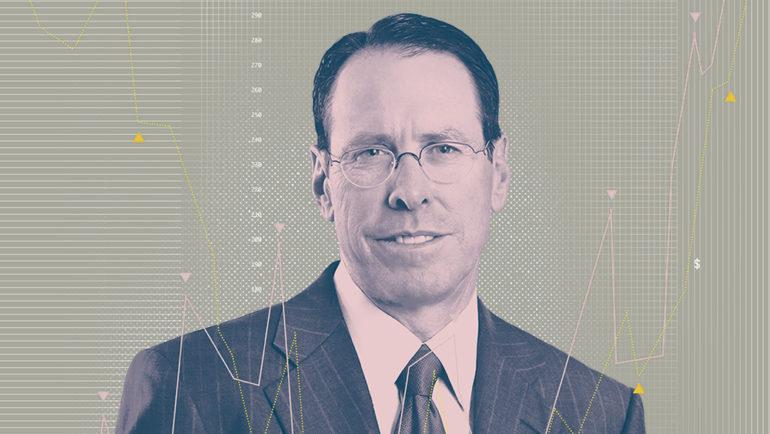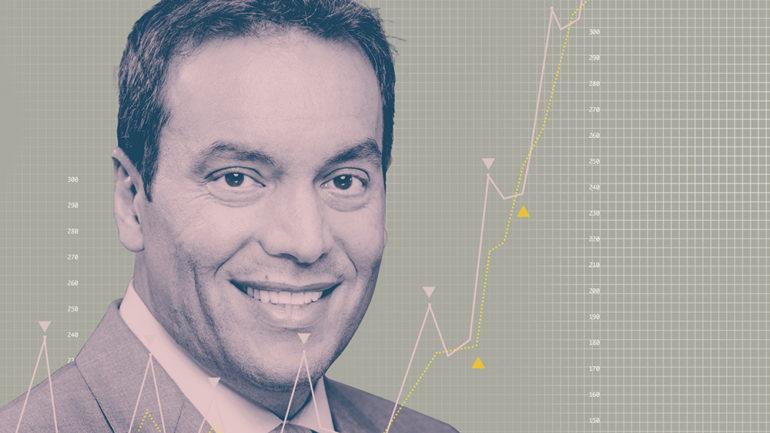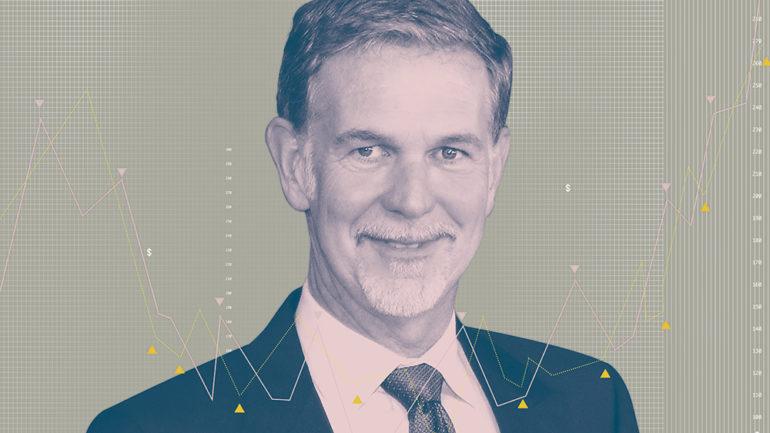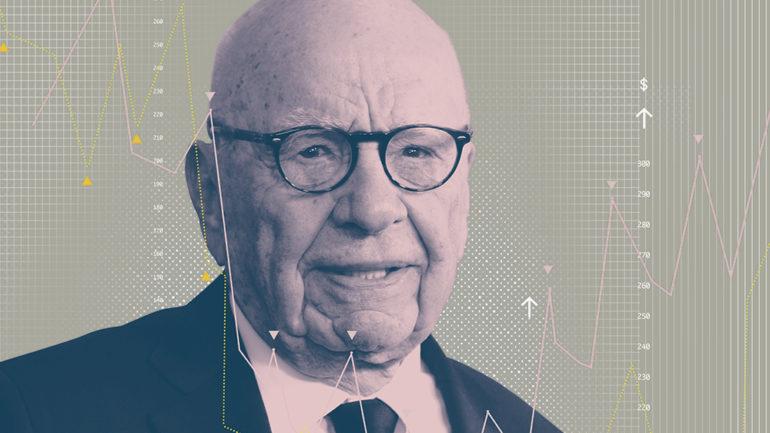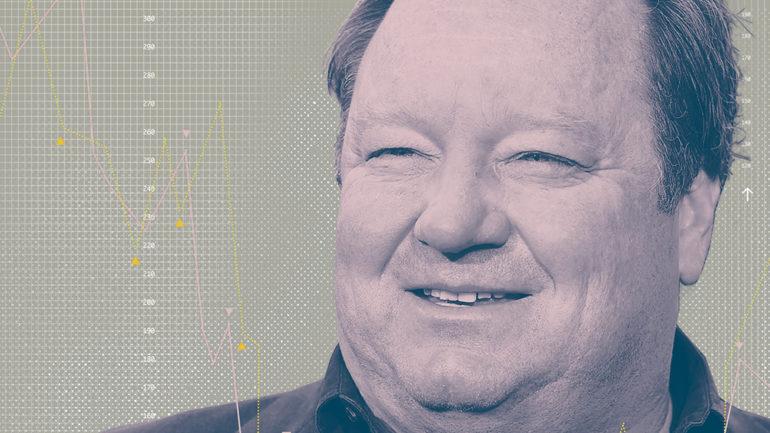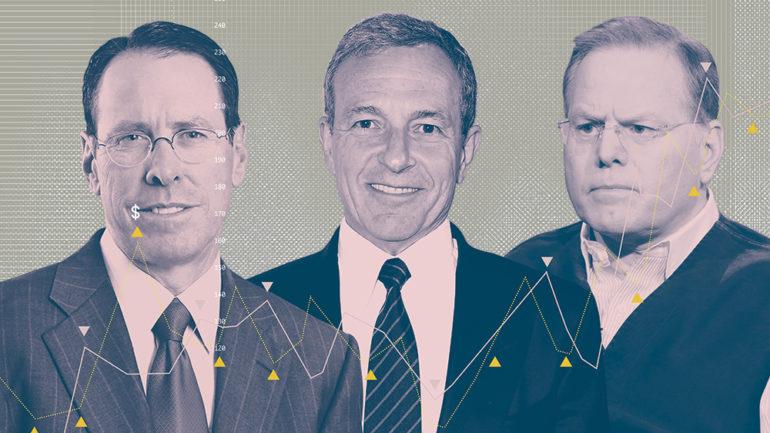What the Media’s Most Powerful Executives Were Paid in 2018
LOS ANGELES (Variety.com) – The bosses and directors of the world’s largest media companies aren’t going to win many popularity contests. They anger a lot of people, including investors, when they approve out-of-whack pay packages for their CEOs. Their lavish salaries and generous awarding of stock options to key leaders enrage politicians on the left and threaten to become a political issue in the upcoming presidential election. And they appear to have been oblivious to women’s concerns as disclosures of sexual harassment and bullying at the companies they oversee piled up over the past year or so.
With the pressure of accountability rising, will things change? Not if you look at the latest annual proxy reports from the nine companies on our watch list. (AT&T replaces Time Warner, which the telco acquired last year and renamed WarnerMedia.)
By any empirical standard, 2018 was a very good year to call the shots at major entertainment or technology conglomerates. The chiefs on our list collectively made $393.8 million, which is 22.2% more than people with the same titles saw in 2017. Each averaged $43.8 million. That suggests a typical U.S. employee would have to work 640 years to make as much as each CEO averaged in one, based on each company’s calculation of the median employee compensation.
“The CEO compensation at the largest firms has grown by several orders of magnitude more quickly than those of regular workers, whose wages have remained relatively stagnant,” says Lawrence Mishel, distinguished fellow at the Economic Policy Institute. “These executives push for exorbitant pay because it’s a measure to them of their value and standing, but I have a hard time believing they are three hundred times more valuable than a typical employee who is good at their job.”
There’s a lot riding on the decisions these CEOs make. Many are being asked to stabilize flatlining cable and ad revenues, grapple with challenges to the theatrical exhibition business, stanch the bleeding of the home entertainment sector and chart a course through a brave new world of streaming. Some compensation experts say that makes visionary — or even simply competent — leadership a hot commodity.
“It’s not easy to run a multibillion-dollar company,” says Fred Whittlesey, founder of Compensation Venture Group. “It’s a skill set that very few people have.”
It is also true that since the 1990s, many of these compensation packages have been largely composed of stock options, the idea being that CEOs’ fortunes should rise or fall with those of the company they lead.
“The formula doesn’t always work, but the rationale is that if a CEO benefits, so do the shareholders,” says William Simon, a compensation expert at Korn Ferry.
In 2018, the big increases in pay packages weren’t just attributable to rising share prices. They mostly flowed from rewards directors gave the executives for crafting deals including AT&T’s purchase of Time Warner, Disney’s acquisition of much of Fox, Discovery’s pickup of Scripps Networks and Lionsgate’s assumption of Starz. But dealmaking is part of the CEOs’ job descriptions. And it looks callous to give outsize rewards for decisions that may cost thousands of ordinary employees their livelihoods.
RELATED: ‘Because They Can’: Inside the Growing Debate on Media CEOs’ Jaw-Dropping Salaries
That’s why the surge in media CEO pay is sure to catch the attention of those concerned about widening disparities between the incomes of the superrich and those of everyone else. The public was evenly split last year between those who favor and those who oppose federal action to limit CEO pay at major corporations, a Gallup poll found.
Media boards also were deaf to concerns about the lack of women in their ranks. Women currently hold 28% of the seats, an increase from 23% in 2018. But most of the gains took place at one company, CBS — and only after CEO Leslie Moonves was forced out following multiple reports of sexual harassment. The CBS board is now 55% female, up from 21% last year and 15% in 2016. Other companies still have a long way to go: Men hold 92% of the seats at Fox and Discovery, 85% at Lionsgate and 80% at Comcast. All of the committees on these boards are chaired by men.
The Moonves debacle is instructive. For decades, the CBS chief made Wall Street believe that he alone had a golden programming touch, that only his genius could produce a successful lineup of “CSI” spinoffs and Chuck Lorre sitcoms. But reports of his abusive leadership style and alleged mistreatment of actresses and female executives expose the darker side of power and the risks industries take when they believe certain leaders are irreplaceable.
“Organizations need to recognize that no individual is so important that they are going to make or break a company,” says Charles Elson, director of the John L. Weinberg Center for Corporate Governance at the University of Delaware.
AT&T
Randall Stephenson: Chairman, CEO and president, AT&T
2018 AT&T CEO compensation: $29.1M/+1.4%
John Stankey: CEO, WarnerMedia
2018 WarnerMedia CEO compensation: $16.6M/+64.0%
Median employee compensation: $95,814
Stephenson/Stankey Pay ratio to median employee: 304/173
2018 Total shareholder return: -22.3%
Board: 9 men/3 women
Board average age: 62
The AT&T board faced a test in 2018 following its acquisition of Time Warner (now WarnerMedia): Would it go Hollywood with its executives’ compensation — handing out huge raises to bring them in line with the colossal pay of their new peers in the media industry? Or would it hold the line at totals that are merely enormous but within the ballpark for big U.S. corporations?
The answer is: a little of both, but mostly the latter.
Stephenson ranks toward the bottom of our compensation list, even though AT&T has a far bigger market value than any of the other companies represented here. For perspective: His 2018 compensation was 18% lower than the $35.7 million that former Time Warner CEO Jeff Bewkes collected on average in his last five years in the job, a period when William Barr, now the U.S. attorney general, chaired Time Warner’s Compensation Committee.
Stankey, Bewkes’ successor, made less in 2018 than everyone on our list except Lionsgate’s Jon Feltheimer, even after a 64% increase that made him AT&T’s second-highest-paid exec. The reason for his huge spike in compensation: Directors wanted Stankey’s tally to “reflect his new responsibility for all of AT&T’s content-related assets” and “to be more consistent with pay mixes in the media industry,” the proxy says. The board boosted his salary 191% over the course of the year to $2.9 million. It gave him a $2 million bonus for helping wrap up the merger. It added $5.4 million to the target for Stankey’s short-term incentive award, bringing his potential haul to $7.4 million. He ended up with $4.4 million — 78% of the target versus last year’s 90% of his lower target. AT&T fell short of its earnings per share and free cash flow goals, but declined to dock Stankey’s pay because he was so collaborative.
AT&T’s board became more male-dominated this year with the retirement of Joyce Roche, the former CEO of advocacy group Girls Inc. The company decided not to replace her, reducing the board’s size to 12.
CBS
Joseph Ianniello: President and acting CEO
2018 CEO compensation: $27.4M/+23.7%*
Les Moonves: Former chairman and CEO
Compensation†: $47.1M/-32.1%
If you doubt that CEO compensation can be a rigged game, consider Moonves.
Median employee compensation: $104,007
Ianniello pay ratio to median employee: 263
Moonves pay ratio to median employee: 452
2018 Total shareholder return: -24.9%
Board: 6 women/5 men
Board average age: 66
CBS directors made him one of the nation’s highest-paid chiefs — he was No. 4 in 2017 — saying that without eye-popping compensation CBS might lose his “outstanding leadership,” “vision,” “stellar reputation” on Wall Street and “contributions to the creative successes across the company’s portfolio of businesses.”
But CBS is doing just fine following Moonves’ September ouster for alleged sexual harassment. CBS’ latest proxy, from a different board, credits acting CEO Ianniello for record revenue and earnings. In a clear dig at Moonves, directors also said they value Ianniello’s “initiatives designed to improve communication and transparency and foster a more respectful and inclusive corporate culture.”
Nevertheless, CBS’ compensation remains astronomical: Although Ianniello spent most of 2018 as chief operating officer, his pay, at $27.4 million, puts him ahead of others on our list. Under a contract extention, he will get a $3 million salary this year as well as a $15 million bonus and $5 million in cash. And Moonves remained CBS’ highest-paid exec, with $47.1 million for his eight months of work — even after forfeiting $34.5 million in stock awards. An arbitrator will decide whether he’s entitled to an additional $120 million.
While Moonves understandably attracted the most attention, the overhaul of the board might have a bigger impact on the company. Five people replaced the eight mostly Moonves allies who left. That made the two companies Shari Redstone controls — CBS and Viacom — the only ones on our list with majority-
female boards.
Comcast
Brian Roberts: Chairman and CEO
2018 compensation: $35.0M/+7.7%
Stephen Burke: CEO, NBCUniversal
2018 compensation: $40.0M/-14.1%
Median employee compensation: $82,205
Roberts/Burke Pay ratio to median employee: 426/486
2018 Total shareholder return: -12.7%
Board: 8 men/2 women
Board average age: 65
Pay no attention to the 12.7% drop in Comcast’s stock price in 2018. It was weighed in the first half of the year, Comcast says in its latest proxy, by “uncertainties regarding our consideration of significant strategic steps toward becoming a stronger leader in entertainment and technology” — corporate-speak for the company’s unsuccessful attempt at buying much of Fox. And, hey, the board rewards execs for “thinking strategically and pursuing strategic pivotal transactions.” In 2019, the stock began to claw back its losses, climbing 27% year to date.
CEO Roberts won a 3% increase in his rate — which paid off a second time in his bonus, pegged at three times his salary. He received 112% of the target, mostly reflecting the company’s performance against its financial goals.
Comcast has a benchmark for “customer experience” left undefined “due to competitive concerns.” Here Roberts scored 21.7% on a scale that could go up to 40% — not great, but a lot better than last year, when he scored 0%.
Directors gave him options worth $5.3 million and contributed $4.4 million to his deferred compensation account: a sweet perk that entails $84.4 million stowed away earning a 12% return. Not that it matters: Roberts’ stock in Comcast is currently worth about $2 billion.
Maybe that’s why the CEO is OK with NBCUniversal chief Burke getting a better package. Burke’s $40 million is off 14.1% versus 2017 only because last year included a $10 million stock grant “to incent him to continue to make decisions that build long-term value for NBCUniversal” — in other words, to do his job.
At year end, he had $165.7 million in the deferred compensation account.
Comcast directors take pride in the fact that “over 60% of our employees are women or people of color.” But the board remains 80% male, with no female committee chairs.
Discovery
David Zaslav: President and CEO
2018 compensation: $129.5M +206.5%
Median employee compensation: $85,704
Pay ratio to median employee: 1,511
2018 Total shareholder return: +10.5%
Board: 11 men/1 woman
Board average age: 67
How many times can a CEO receive “one-time” stock awards? If you answered “once,” then you fail the Discovery board’s math quiz. Last year was the second time in four years that it shoveled so-called one-time grants to CEO Zaslav. This was both a reward for buying Scripps Networks and an incentive to persuade him to stay through 2023 at a job that makes him one of the nation’s highest-paid executives.
Since he signed his contract extension in July, Zaslav was able to collect the additional stock on top of the awards early in the year from his previous agreement. Without the stock from the contract extension, Zaslav would have made merely $35.5 million in 2018. That would have been equal to 414 ordinary Discovery employees and put him second on our list to Disney’s Bob Iger — who also benefited from an acquisition and contract extension.
Zaslav’s new contract has sweeteners that last beyond 2018. Starting this year, his target bonus leaps to $22 million from $9 million.
He shouldn’t have trouble hitting the target: The board gave him the full amount in 2018, calculating that the company cleared its financial goals. In addition, directors found that the CEO fulfilled 100% of his subjective qualitative ones, up from 94% in 2017. The goals include one to “attract, retain and reward exceptional talent while supporting our core values and diversity.”
That last standard might sound strange coming from the least gender-diverse board in our group. There are some institutional reasons for that. Large shareholders, including John Malone and Advance/Newhouse, control many of Discovery’s seats. Eight of the 12 directors have been on the board since 2008.
Still, directors appear unfazed by the gender imbalance. The Nominating and Corporate Governance Committee doesn’t have a formal diversity policy. Its guidelines for identifying potential directors are so broad as to be meaningless: They call for the company to consider “diversity of gender; race; ethnic or geographic origin; age; and experience in business, government and education in media, entertainment and other areas relevant to the company’s activities.”
Disney
: Chairman and CEO
2018 compensation: $65.6M/+80.9%
Median employee compensation: $46,127
Pay ratio to median employee: 1,424
2018 Total shareholder return: +20.6%
Board: 5 men, 4 women
Board average age: 59
Disney directors seem to have gotten the message: It’s OK to make Iger’s compensation package ridiculously large — just not grotesque.
They gave him $65.6 million in 2018, an 80.9% increase that the company figures makes him worth about 1,424 average employees. Most of the increase came from a one-time stock award the board granted at the end of 2017, ostensibly to persuade him to stay through 2021 and oversee Disney’s acquisition of Fox’s studio and other entertainment assets. Directors priced the award at $26.3 million — although performance conditions could drive the value to $110.9 million.
A Disney spokesman stated that Iger’s compensation was 90% performance-based, and noted that the company’s market cap grew $90 billion, to $250 billion, last month. “The stock hit a record high of $140 a share [April 26] compared to $24 a share when he became CEO in 2005,” the spokesman stated.
But Disney shareholders choked on CEO benefits that were supposed to kick in when the Fox deal closed. Days before the annual meeting in March, Iger and the board agreed to drop a planned $500,000 hike in his salary — which would have come on top of last year’s 20% increase — to $3 million. They’ll keep his annual bonus target at $12 million, scrapping an agreement to raise it to $20 million; hold his long-term incentive-award target at $20 million, dismissing a $5 million raise; and maintain the maximum payout at 150% instead of upping it to 200%. Directors awarded him an $18 million bonus, judging he accomplished 175% of his qualitative goals — pretty darn good even if it is down from 189% in 2017 and 202% in 2016.
On the financial-performance metrics, which drive most of the bonus, Disney hit 139%, up
from 100%. Iger had some help from the way the board tallied the numbers, which didn’t include expenses tied to the firm’s one-time $1,000 employee bonus, the Fox deal, content devel opment costs for Disney Plus and lost licensing income due to “the revised distribution strategy.”
Disney’s been ahead of the pack in lowering the average age of its board and making it more welcoming to women: Unlike every other company on our list, women chair all the committees.
Netflix
Reed Hastings: Co-founder, chairman and CEO
2018 compensation: $36.1M/+48.0%
Median employee compensation: $202,335
Pay ratio to median employee: 178
2018 Total shareholder return: +39.4%
Board: 7 men/4 women
Board average age: 56
Netflix directors take a no-nonsense approach to Hastings’ compensation: There are no perks for personal security, car services, home office or club memberships — although he did receive $1.2 million last year as a reimbursement for letting the company lease two jets that he owns.
They also don’t mess with quantitative and qualitative goals and inflated descriptions of the blessings the CEO bestows on the company. Instead, the board says it is “guided by market rates” for the job, tailored to the person’s “specific needs and responsibilities” as well as “performance and unique qualifications.” Their guidelines specifically eschew considerations of “seniority or overall company performance.”
Netflix’s stock price does factor in, however, since almost all of Hastings’ pay flows from one category: stock options.
The process worked well for the CEO last year. His 48% increase — all from option awards plus a $700,000 salary — puts him squarely in the middle of our media mogul pack.
That compensation, measured in millions, may not matter much to Hastings. His 2.5% ownership stake in Netflix was worth $2.7 billion at the end of 2018, and now hovers around $3.9 billion.
The story was a little different for chief content officer Ted Sarandos, whose compensation jumped 32% to $29.6 million. He has an unusually high salary of $12 million, with the rest coming from stock and a few perks, including $19,599 for personal use of the company jet plus $4,402 for “commuting expenses.”
Netflix has the youngest board of the companies we track. It’s also 36% female. Former Pixar chief financial officer Ann Mather chairs one of the board’s three committees.
21st Century Fox
Rupert Murdoch: Executive chairman
2018 compensation: $49.2M/+68.0%
Median employee compensation: $67,809
Pay ratio to median employee: 726
2018 Total shareholder return: +78.9%
Board (21st Century Fox): 10 men/1 woman
Board average age (21st Century Fox): 60
The Fox board — the one in place before Disney bought the company’s studio and other entertainment assets — showered love in 2018 on Murdoch and other execs, including sons James and Lachlan, for the $71 billion transaction. Directors gave the family patriarch $13.4 million in stock units, half due to vest in June 2020, to ensure that he stays with the company he built. That may even out later: He won’t be eligible for performance stock unit awards from 2019 to 2021.
The deal paid off a second time for Rupert when the board determined his annual bonus, which rose 25% to $13.1 million. Directors figured he achieved 200% of his subjective qualitative goals, up from 100% last year. That more than compensated for the part of his bonus tied to Fox’s financial performance, which fell to 87% from 100%.
The Disney transaction “delivered unparalleled value to shareholders,” the board said, noting the 77.4% increase in Fox’s total shareholder return.
Directors also praised Murdoch’s “critical leadership to maintain the exceptional performance of Fox News Channel during a period of transition,” apparently absolving him of any responsibility for the harassment and ethical transgressions that led them to create a Fox News Workplace Professionalism and Inclusion Council.
The board of the new company, formed after the Disney deal, consists of six men and one woman. Murdoch will have to learn to live with less as co-chairman of his new Fox. His new salary is $5 million, down 30% from what it was at 21st Century Fox. His target bonus of $6 million is a 43% cut. But he has a sweet long-term incentive award of $7 million to tide him over during these leaner times.
Viacom
Bob Bakish: CEO
2018 compensation: $20.0M/-1.8%
Median employee compensation: $25,469
Pay ratio to median employee: 784
2018 Total shareholder return: +24.5%
Board: 5 women/4 men
Board average age: 61
Memories of the era when Viacom rewarded its CEO for failing are starting to fade like a bad dream. These days, Bakish is paid like a mere media mogul, not King Croesus.
The board made up for most of the $3.3 million drop in the value of Bakish’s stock awards by giving him a $2.4 million boost in his bonus to $9.4 million — well above the $7 million target.
It figured the CEO accomplished 125% of his subjective qualitative goals, up from 100% last year, by providing “strategic leadership and management for our company during a uniquely challenging time of uncertainty and transition.”
Bakish’s total compensation makes him worth 784 average Viacom employees — who the company says made what appears to be a shockingly low $25,469 median salary. But more than 40% of the employees included were project based, some working just a day, and on average made less than $3,000, the proxy notes. Viacom and CBS — both controlled by Shari Redstone — have majority-female boards. Directors say the composition “reflects our commitment to include individuals from diverse backgrounds and with diverse experience.”
Most of the information in this story comes from the proxy statements and reports that the Securities and Exchange Commission requires publicly traded U.S. companies to file each year. Overseas companies such as Sony, and privately held ones such as MGM, do not file and are not included in our tally. The SEC filing requirements are designed to help people compare information from different companies. But there are some caveats: companies file reports for their fiscal years. Most coincide with the calendar year, but several do not: Lionsgate’s fiscal year ends in March; Fox’s ends in June; Disney’s and Viacom’s end in September. Our data is from their most recent annual filings.
Our data about the composition and ages of company boards also reflects the information included in the latest proxy statements.
The SEC requires companies to disclose a median employee compensation figure, along with a ratio derived from that total paid to the principal executive officer. Companies calculate the medians differently, so they aren’t comparable.
Although our list focuses on CEOs, for Fox we included executive chairman Rupert Murdoch instead of CEO James Murdoch; Rupert was widely seen as the company’s key decision-maker. This year’s list also includes AT&T, which acquired Time Warner.
David Lieberman is an associate professor in the graduate Media Management program at The New School.
